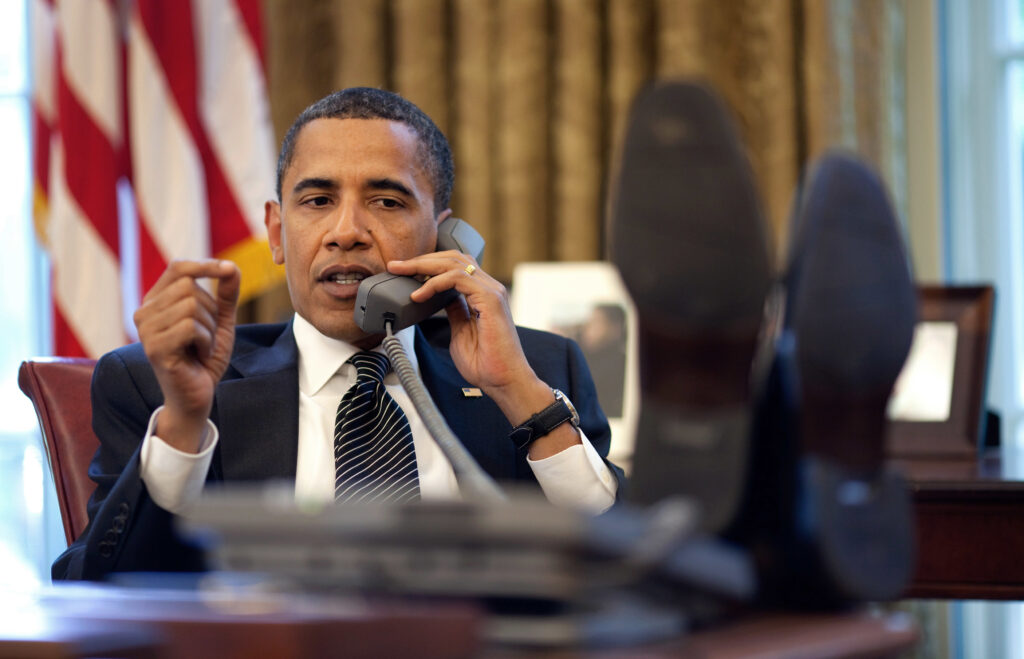Leadership is the hallmark of all great presidents as characterized by the Schlesinger Poll, perhaps the most prestigious of all presidential surveys. As Barack Obama concludes the last two years of his presidency, the historians and political scientists who participate in such polls will begin to assess the administration’s successes and failures and whether that leadership quality has been clearly demonstrated. What, one may ask, are the distinguishing characteristics of a great leader? Probably the best litmus test of a strong leader is his performance during periods of crisis, such as wars or periods of major domestic upheaval. Great presidents such as Washington, Lincoln and FDR embraced these periods of challenge and rose to the occasion whereas the failed presidencies of Buchanan, Harding and Pierce exhibited an absence of leadership in times of crisis, relegating their names to the dustbin of history.
As historians attempt to rank President Obama, they will most likely focus on his foreign policy challenges, specifically those in the Middle East and North Africa, in order to assess his leadership skills during periods of crisis. Let’s take these geopolitical crises one by one.
In Iraq, Barack Obama inherited a vastly improved post-surge situation only to disavow a sincere effort to secure a longer lasting peace through a status-of-forces agreement. The President’s fulfillment of a campaign promise to withdraw all American troops degenerated into “the great bugout,” exemplifying his rejection of a perceived imperialist foreign policy. The U.S. had forfeited an opportunity to create a bulwark in the Middle East against the rise of radical Islam, the heroic efforts of thousands of U.S. armed forces were squandered and the ensuing void led directly to the re-emergence of al Qaeda in Iraq, known today as ISIS. A terrorist state now covers the western part of Iraq and eastern Syria and threatens the region. In Iran, Obama has likewise taken the low road, seeking to appease the mullahs who openly employ taqqiya (“strategic lying to infidels,” as eloquently described by Andrew McCarthy in Spring Fever) in gaming the negotiation process while aggressively advancing their nuclear program and fomenting instability in the Middle East. Meanwhile, Afghanistan threatens to become another disaster as the telegraphed departure of the last U.S. troops gives the green light to the Taliban’s efforts to reassert its power. Finally, China and Russia are now both actively pushing the limits of expansionism, the latter country seeking to regain the glory of the old Soviet Union. Ex-KGB agent Vladimir Putin is brazenly schooling Barack Obama in the fine art of Machiavellian politics, abetting insurrection in Ukraine after having already annexed the Crimea.
Who among our great presidents of the past would have accepted these examples of such naked aggression? In 1948, Harry Truman made a bold decision to confront the Soviet Union, demonstrating the leadership that helped earn him a “Near Great” ranking in the Schlesinger Poll. In proposing his Marshall Plan to Congress, Truman defined the challenge, concluding: “We must be prepared to pay the price for peace, or assuredly we shall pay the price of war.” (Truman, David McCullough, 1992). In the many tests of Barack Obama’s foreign policy thus far, our President has been unwilling to pay the price for peace. Only the future will tell whether we will pay the price of war.
While this editorial has dealt exclusively with foreign policy, historians determining the leadership talents of President Obama will likewise judge domestic policy. The success of the Affordable Care Act is yet to be determined, though results so far appear questionable at best. The economic recovery still sputters as an anti free market philosophy espoused by the administration undermines private sector entrepreneurship, notwithstanding the robust revolution in the energy sector. Otherwise, the administration seems more interested in tilting at the windmills of climate change and income inequality rather than addressing more meaningful issues such as immigration policy and deplorable underlying unemployment trends.
How will the historians grade our President? In two short years the curtain will come down on the Obama administration and historians will scrutinize how well he has demonstrated leadership during his term in office. Will his abdication of that role, especially as regards to foreign affairs, remind future historians of the past failed presidencies of Harding, Buchanan and Pierce administrations? Only time will tell.




